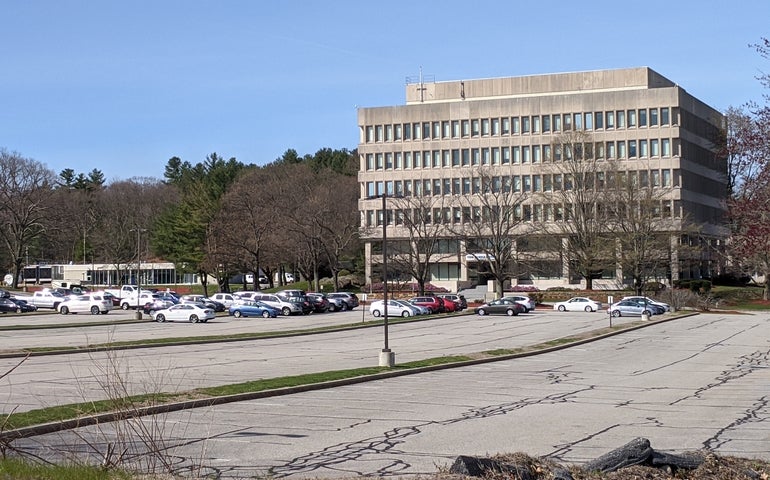Business confidence slid further into negative territory as Massachusetts employers dealt with financial fallout of the coronavirus pandemic and uncertainty about re-opening plans in April, but remains above its all-time low during the Great Recession.
The pessimistic outlook from the business sector comes after more than a month of government-forced business shutdowns and at the very beginning of a plodding resumption of more normal economic activity. The ramifications of those policies, imposed to slow the spread of the virus and spare the health care system from being overwhelmed, will be further highlighted when the Department of Revenue reports April tax collections, which are widely expected to punch a hole in the state budget picture, later Tuesday.
The Associated Industries of Massachusetts business confidence index fell 1.8 points to 38.4 in April after taking its largest monthly tumble on record — a drop of 22 points — in March as the pandemic took hold. The index is presented on a 100-point scale with 50 representing a neutral outlook. The lowest confidence reading recorded by the index, which began its monthly survey in July 1991, was 33.3 in February 2009.
“Confidence remains at a pessimistic level even as portions of the nation begin to announce plans to gradually re-open their economies. But a meaningful rebound in confidence will depend on a still-uncertain balance of public health factors and economic ones,” Raymond Torto, the chair of AIM’s Board of Economic Advisors, said.
Massachusetts businesses are slightly more confident in the state economy than they are in the national economy — the Massachusetts Index came in at 34.5 while the U.S. Index read 32.1 in April, AIM said. In a twist not usually seen in AIM’s monthly business confidence reports, Western Massachusetts companies were more optimistic (a 39.0 reading) than companies in the eastern part of the state (confidence reading of 37.3).
The economic blows from the COVID-19 pandemic have landed heavily on key drivers of the state’s economy — health care and higher education, Elmore Alexander, the retired dean of the Ricciardi College of Business at Bridgewater State University, said.
“The COVID-19 outbreak has been particularly severe in Massachusetts as well, so the re-opening of the economy may take longer than in other states and other countries. An important milestone will be whether college students return to campus in the fall,” he said.
AIM is working with the Baker administration’s re-opening advisory group, led by Lt. Gov. Karyn Polito and Economic Development Secretary Mike Kennealy, to devise strategies for a safe restart, but AIM President and CEO John Regan cautioned that it will likely be a long slog back to anything like normal for businesses.
“Any decision by government to lift of the prohibition on non-essential businesses will be just the beginning for Massachusetts employers, who will in many cases need to reconfigure workplaces for social distancing and determine how to implement other safety measures such as the wearing of protective equipment, continuing work-from-home policies and ensuring the health of workers and customers,” he said.
As the advisory group begins to draft the rules for a return to more normal business activity, AIM is also turning to employers to get a better sense of what things are really like for businesses. The organization on Monday launched a new survey that asks about current operational status, whether employers intend to require their employees to wear masks, whether companies secured loans under the federal government’s Paycheck Protection Program, and other COVID-19-related topics.
“You’ve no doubt seen a flood academic studies and Ph.D.-generated think-tank reports about re-opening the economy. The AIM effort is different. Our objective is to develop a practical approach to re-opening from the perspective of the employers and workers who actually make our economy run,” Regan wrote in an email.
Regan said AIM has formed its own task force of Massachusetts companies to detail the business, health, legal and human resources issues that employers will face as the economy reopens. AIM Director Thomas Wesley, who Regan said is overseeing return-to-work issues across multiple states and countries for the Milford-based Waters Corporation, is leading AIM’s task force.

